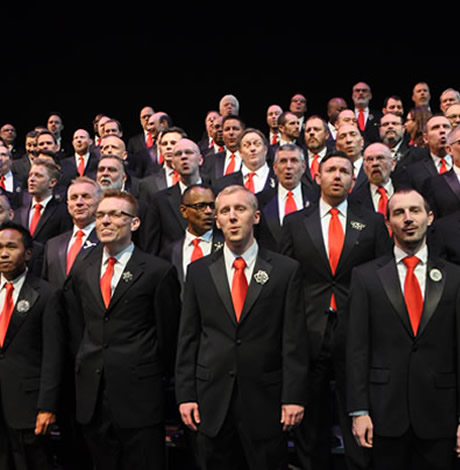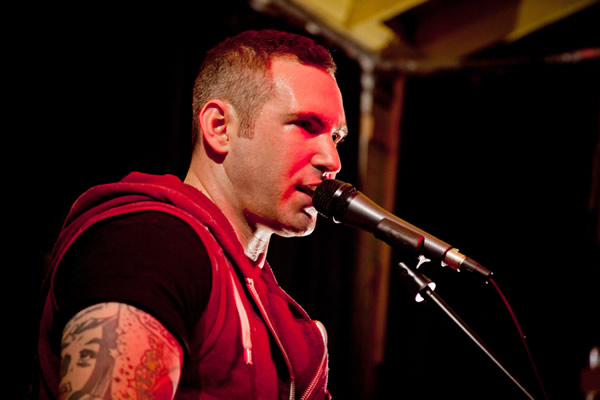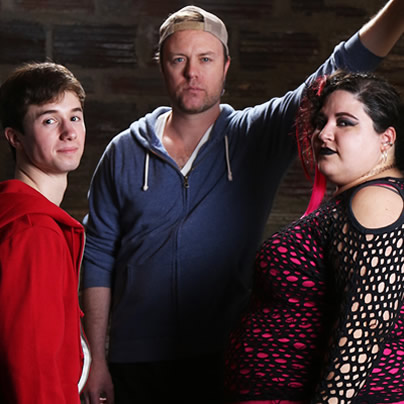Arts & Entertainment
Trans Pride slated for Saturday
Famous surgeon Marci Bowers to speak


Dr. Marci Bowers says gender reassignment surgery isn’t as traumatic as many fear. Complications, she says, are extremely rare, patients are in the hospital an average of only three nights and most are off pain medication within 48 hours. (Photo courtesy of Bowers)
Dr. Marci Bowers is a rarity — she’s one of only two doctors who specializes in gender reassignment surgery who’s also transgender herself. The other (Dr. Christine McGinn) is a protégé of Bowers.
Bowers, who transitioned in the mid-1990s, is the only gynecologist who does gender reassignment surgery. She’ll be at Trans Pride Saturday (10 a.m. to 5 p.m. at Metropolitan Community Church of Washington) to give the keynote address and took nearly an hour on the phone last week from her practice in San Mateo, Calif., to talk about her life, her work, the practicalities of trans surgical procedures and where trans issues are going. Bowers’ comments have been edited for length and clarity.
Blade: How does a surgeon trained in one area move to another? What kind of training is involved?
Bowers: Well sometimes people think when you’re a gynecologist all you do is look at female vulvas all day but it’s quite a surgical specialty. There’s extensive surgery experience required before learning the gender reassignment stuff. And after I’d been doing surgery in practice for 13 years or so, once you have a basic framework about handling tissue ane bleeding, learning a new skill isn’t as hard as it might seem.
Blade: So if someone does, say, gall bladder surgeries and wants to start doing heart transplants, what’s the process like to move to a whole other part of the body?
Bowers: Traditionally you have to do a fellowship of some kind to do that. You have to go back, reapply as if you’re just out of medical school, do a residency all over again in the new field and go from there. They might give you a little credit on a few things, but you pretty much have to start back at the beginning. It was different for me because there’s no residency or fellowship for doing gender reassignment surgeries and I had a lot of experience surgically so doing an entire residency for me would have been ridiculous and superfluous. It’s really a mentoring process and I learned from Dr. (Stanley) Biber.
Blade: Does it give you added credibility to be doing these surgeries but also be transgender yourself?
Bowers: Well, I think that’s really for the consumer to decide that, but I think so. It’s sort of like the hair club for men. Not only am I president, I’m also a customer. Someone who understands what it’s like to be bald. Or like if you’re selling sports cars but you drive a minivan. I know what the consumer is looking for but I think being a gynecologist is the most important. Because it’s a very visual surgery and very artistically based. If someone has a gall bladder out and there are no complications, nobody cares what it looked like but this surgery has such an artistic component, the surgeon’s interpretation is so critical.
Blade: Many trans people say the non-trans world is too obsessed with who’s had what done surgically. Do you agree?
Bowers: That’s a crucial point and one that I keep bring up proactively because obviously people still don’t understand the difference between gender and genitalia. Gender, we know, gets established at a very early age, like by age 4, 5 or 6 and it doesn’t really change very much. This is what transgender people have been saying for years, “This is how I felt since I was 5 years old.” So the question about surgery is really the dumbest question. … I was a woman since I transitioned. Nobody tells you whether you’re male or female. And it isn’t about the surgery, it’s what society says when they meet you at the grocery store or the food counter.
Blade: Trans acceptance seems to be making progress but still seems significantly behind gay and lesbian lib. Do you agree with that? Do you think it will continue to improve?
Bowers: Well, yes, I do think we are behind where the lesbian and gay community is in terms of acceptance. Some of that is just the sheer numbers, some of it is it’s still a little bit of a minority sort of thing and somehow it does sort of push people’s buttons in a different way. That’s too bad because if the gay and lesbian community saw the trans community as more supportive, we could make much more progress but sometimes the discrimination we get within the gay and lesbian community is worse than it is with the straight community. It’s like they just don’t get it and it’s very hurtful. There are common threads that run through all kinds of discrimination. We’re fighting the same forces that want to simplify the world and turn back the clock so everything is black and white and keep dragging at the heels of progress.
Blade: What kinds of procedures do you do? All “bottom” stuff or more?
Bowers: Kind of bottom plus. I do a procedure on the females, Chondrolaryngoplasty, which is a shaving of the thyroid cartilage. For some women, it’s a telltale sign in the throat and it was first done by Dr. Biber in the 1970s. It’s also a very delicate procedure that’s not taught anywhere, no ear, nose or throat doctors do it. It’s a very specialized thing.
Blade: And you do both male-to-female and female-to-male gender reassignment procedures?
Bowers: Yes.
Blade: Which are more common? How many do you average in a year?
Bowers: I do about 120 male-to-female surgeries a year. It’s about four-to-one female to male versus male to female.
Blade: Are most people able to orgasm after surgery?
Bowers: It’s different. For female to male, there’s really no impact. With a Metoidioplasty, guys can use it for penetration so that’s the good part there. If anything, it’s enhanced. Plus the fact that they’re testosterone-driven men, the libido tends to accelerate with transition. With male to female, it’s very complicated and about 30 percent of biologically born women aren’t able to orgasm at all anyway. Our patients for the most part are able to. It’s a very high percentile. About 90 percent but the thing you have to realize is that going from male to female for one thing, just hormonally, you tend to go to a lower level of interest just based on reduced testosterone levels. When you’re a woman, you wonder why we leave men in charge of so much. It’s so dominated by sexual thoughts. Sometimes I think, “Wow, what was I thinking about all those years? There’s so much more to do.” I say that sort of tongue in check. And the feelings are a big different. Maybe like going from the oboe to the banjo.
Trans Pride to feature health focus
Trans Pride, now in its fifth year, will be held Saturday at Metropolitan Community Church of Washington (474 Ridge Street, N.W.) from 10 a.m. to 5 p.m. and is designed to be an event where attendees stay for all or most of the day.
“Very early on, the community voted for it to be a health-based focus,” says Danielle King, who’s co-charing this year’s event with Holly Goldmann. “That’s why Dr. Bowers was invited. We felt like she could offer some insight that would be really attractive to our audience.”
A $10 donation is suggested but not required. King hopes attendees will plan to spend their whole day at the church.
“We want them to come and enjoy the whole day,” she says. “There’ll be workshop and panel discussions on trans health throughout the day.”
She expects about 200 people, more than in past years when the event has been held at the Capital Pride host hotel.
Trans Pride is under the Capital Pride events umbrella.
Theater
Magic is happening for Round House’s out stage manager
Carrie Edick talks long hours, intricacies of ‘Nothing Up My Sleeve’

‘Nothing Up My Sleeve’
Through March 15
Round House Theatre
4545 East-West Highway
Bethesda, Md. 20814
Tickets start at $50
Roundhousetheatre.org
Magic is happening for out stage manager Carrie Edick.
Working on Round House Theatre’s production of “Nothing Up My Sleeve,” Edick quickly learned the ways of magicians, their tricks, and all about the code of honor among those who are privy to their secrets.
The trick-filled, one-man show starring master illusionist Dendy and staged by celebrated director Aaron Posner, is part exciting magic act and part deeply personal journey. The new work promises “captivating storytelling, audience interaction, jaw-dropping tricks, and mind-bending surprises.”
Early in rehearsals, there was talk of signing a non-disclosure agreement (NDA) for production assistants. It didn’t happen, and it wasn’t necessary, explains Edick, 26. “By not having an NDA, Dendy shows a lot of trust in us, and that makes me want to keep the secrets even more.
“Magic is Dendy’s livelihood. He’s sharing a lot and trusting a lot; in return we do the best we can to support him and a large part of that includes keeping his secrets.”
As a production assistant (think assistant stage manager), Edick strives to make things move as smoothly as possible. While she acknowledges perfection is impossible and theater is about storytelling, her pursuit of exactness involves countless checklists and triple checks, again and again. Six day weeks and long hours are common. Stage managers are the first to arrive and last to leave.
This season has been a lot about learning, adds Edick. With “The Inheritance” at Round House (a 22-week long contract), she learned how to do a show in rep which meant changing from Part One to Part Two very quickly; “In Clay” at Signature Theatre introduced her to pottery; and now with “Nothing Up My Sleeve,” she’s undergoing a crash course in magic.
She compares her career to a never-ending education: “Stage managers possess a broad skillset and that makes us that much more malleable and ready to attack the next project. With some productions it hurts my heart a little bit to let it go, but usually I’m ready for something new.”
For Edick, theater is community. (Growing up in Maryland, she was a shy kid whose parents signed her up for theater classes.) Now that community is the DMV theater scene and she considers Round House her artistic home. It’s where she works in different capacities, and it’s the venue in which she and actor/playwright Olivia Luzquinos chose to be married in 2024.
Edick came out in middle school around the time of her bat mitzvah. It’s also around the same time she began stage managing. Throughout high school she was the resident stage manager for student productions, and also successfully participated in county and statewide stage management competitions which led to a scholarship at the University of Maryland, Baltimore County (UMBC) where she focused on technical theater studies.
Edick has always been clear about what she wants. At an early age she mapped out a theater trajectory. Her first professional gig was “Tuesdays with Morrie” at Theatre J in 2021. She’s worked consistently ever since.
Stage managing pays the bills but her resume also includes directing and intimacy choreography (a creative and technical process for creating physical and emotional intimacy on stage). She names Pulitzer Prize winning lesbian playwright Paula Vogel among her favorite artists, and places intimacy choreographing Vogel’s “How I learned to Drive” high on the artistic bucket list.
“To me that play is heightened art that has to do with a lot of triggering content that can be made very beautiful while being built to make you feel uncomfortable; it’s what I love about theater.”
For now, “Nothing Up My Sleeve” keeps Edick more than busy: “For one magic trick, we have to set up 100 needles.”
Ultimately, she says “For stage managers, the show should stay the same each night. What changes are audiences and the energy they bring.”

Friday, February 13
Center Aging Monthly Luncheon With Yoga will be at noon at the DC Center for the LGBT Community. Email Mac at [email protected] if you require ASL interpreter assistance, have any dietary restrictions, or questions about this event.
Go Gay DC will host “LGBTQ+ Community Happy Hour Meetup” at 7 p.m. at Freddie’s Beach Bar and Restaurant. This is a chance to relax, make new friends, and enjoy happy hour specials at this classic retro venue. Attendance is free and more details are available on Eventbrite.
Women in their Twenties and Thirties will be at 7 p.m. on Zoom. This is a social discussion group for queer women in the D.C. area. For more details, visit the group on Facebook.
Saturday, February 14
Go Gay DC will host “LGBTQ+ Community Brunch” at 11 a.m. at Freddie’s Beach Bar & Restaurant. This fun weekly event brings the DMV area LGBTQ community, including allies, together for delicious food and conversation. Attendance is free and more details are available on Eventbrite.
The DC Center for the LGBT Community will host a screening of “Love and Pride” at 1:30 p.m. This event is a joy-filled global streaming celebration honoring queer courage, Pride, and the power of love. It’s a bold celebration of courage and community — a fearless reminder of what we’ve overcome, how love is what makes us unstoppable, and how we have always turned fear into fierce. For more details, visit the Center’s website.
Sunday, February 15
LGBTQ+ Community Coffee and Conversation will be at 12 p.m. at As You Are. This event is for people looking to make more friends and meaningful connections in the LGBTQ community. Attendance is free and more details are available on Eventbrite.
Monday, February 16
Queer Book Club will be at 7:00p.m. on Zoom. This month’s read is “Faebound” by Saara El-Arifi. For more details, visit the DC Center’s website.
“Center Aging: Monday Coffee Klatch” will be at 10 a.m. on Zoom. This is a social hour for older LGBTQ+ adults. Guests are encouraged to bring a beverage of choice. For more information, contact Adam ([email protected]).
Tuesday, February 17
Center Bi+ Roundtable will be at 7 p.m. on Zoom. This is an opportunity for people to gather in order to discuss issues related to bisexuality or as Bi individuals in a private setting.Visit Facebook or Meetup for more information.
Wednesday, February 18
Job Club will be at 6 p.m. on Zoom upon request. This is a weekly job support program to help job entrants and seekers, including the long-term unemployed, improve self-confidence, motivation, resilience and productivity for effective job searches and networking — allowing participants to move away from being merely “applicants” toward being “candidates.” For more information, email [email protected] or visit thedccenter.org/careers.
Thursday, February 19
The DC Center’s Fresh Produce Program will be held all day at the DC Center for the LGBT Community. To be fair with who is receiving boxes, the program is moving to a lottery system. People will be informed on Wednesday at 5 p.m. if they are picked to receive a produce box. No proof of residency or income is required. For more information, email [email protected] or call 202-682-2245.
Virtual Yoga Class will be at 7 p.m. on Zoom. This free weekly class is a combination of yoga, breath work and meditation that allows LGBTQ+ community members to continue their healing journey with somatic and mindfulness practices. For more details, visit the DC Center’s website.
Movies
As Oscars approach, it’s time to embrace ‘KPop Demon Hunters’
If you’ve resisted it, now’s the time to give in

If you’re one of the 500 million people who made “KPop Demon Hunters” into the most-watched original Netflix title in the streaming platform’s history, this article isn’t for you.
If, however, you’re one of the millions who skipped the party when the Maggie Kang-created animated musical fantasy debuted last summer, you might be wondering why this particular piece of pop youth culture is riding high in an awards season that seems all but certain to end with it winning an Oscar or two; and if that’s the case, by all means, keep reading.
We get it. If you’re not a young teen (or you don’t have one), it might have escaped your radar. If you don’t like KPop, or the fantasy genre just isn’t your thing, there would be no reason for that title to pique your interest – on the contrary, you would assume it’s just a movie that wasn’t made for you and leave it at that.
It’s now more than half a year later, though, and “KPop Demon Hunters” has yet to fade into pop culture memory, in spite of the “new, now, next” pace with which our social media world keeps scrolling by. It might feel like there’s been a resurgence of interest since the film’s ongoing sweep of major awards in the Best Animated Film and Best Song categories has led it close to Oscar gold, but in reality, the interest never really flagged. Millions of fans were still streaming the soundtrack album on a loop, all along.
It wasn’t just the music that they embraced, though that was definitely a big factor – after all, the film’s signature song, “Golden,” has now landed a Grammy to display alongside all of its film industry accolades. But Kang’s anime-influenced urban fantasy taps into something more substantial than the catchiness of its songs; through the filter of her experience as a South Korean immigrant growing up in Canada, she draws on the traditions and mythology of her native culture while blending them seamlessly into an infectiously contemporary and decidedly Western-flavored “girl power” adventure about an internationally popular KPop girl band – Huntrix, made up of lead singer Rumi (Arden Cho), lead dancer Mira (May Hong), and rapper/lyricist Zoey (Ji-young Yoo) – who also happen to be warriors, charged with protecting humankind from the influence of Gwi-Ma (Lee Byung-hun), king of the demon world, which is kept from infiltrating our own by the power of their music and their voices. Oh, and also by their ability to kick demon ass.
In an effort to defeat the girls at their own game, Gwi-Ma sends a demonic boy band led by handsome human-turned-demon Jinu (Ahn Hyo-seop) to steal their fans, creating a rivalry that (naturally) becomes complicated by the spark that ignites between Rumi and Jinu, and that forces Rumi to confront the half-demon heritage she has managed to keep secret – even from her bandmates – but now threatens to destroy Huntrix from within, just when their powers are needed most.
It’s a bubble-gum flavored fever-dream of an experience, for the most part, which never takes itself too seriously. Loaded with outrageous kid-friendly humor and pop culture parody, it might almost feel as if it were making fun of itself if not for the obvious sincerity it brings to its celebration of all things K-Pop, and the tangible weight it brings along for the ride through its central conflict – which is ultimately not between the human and demon worlds but between the long-held prejudices of the past and the promise of a future without them.
That’s the hook that has given “KPop Demon Hunters” such a wide-ranging and diverse collection of fans, and that makes it feel like a well-timed message to the real world of the here and now. In her struggle to come to terms with her part-demon nature – or rather, the shame and stigma she feels because of it – Rumi becomes a point of connection for any viewer who has known what it’s like to hide their full selves or risk judgment (or worse) from a world that has been taught to hate them for their differences, and maybe what it’s like to be taught to hate themselves for their differences, too.
For obvious reasons, that focus adds a strong layer of personal relevance for queer audiences; indeed, Kane has said she wanted the film to mirror a “coming out” story, drawing on parallels not just with the LGBTQ community, but with people marginalized through race, gender, trauma, neurodivergence – anything that can lead people to feel like an “other” through cultural prejudices and force them to deal with the pressure of hiding an essential part of their identity in order to blend in with the “normal” community. It plays like a direct message to all who have felt “demonized” for something that’s part of their nature, something over which they have no choice and no control, and it positions that deeply personal struggle as the key to saving the world.
Of course, “KPop Demon Hunters” doesn’t lean so hard into its pro-diversity messaging that it skimps on the action, fun, and fantasy that is always going to be the real reason for experiencing a genre film where action, fun, and fantasy are the whole point in the first place. You don’t have to feel like an “other” to enjoy the ride, or even to get the message – indeed, while it’s nice to feel “seen,” it’s arguably much more satisfying to know that the rest of the world might be learning how to “see” you, too. By the time it reaches its fittingly epic finale, Kane’s movie (which she co-directed with Chris Appelhans, and co-wrote with Appelhans, Danya Jimenez, and Hannah McMechan) has firmly made its point that, in a community threatened by hatred over perceived differences, the real enemy is our hate – NOT our differences.
Sure, there are plenty of other reasons to enjoy it. Visually, it’s an imaginative treat, building an immersive world that overlays an ancient mythic cosmology onto a recognizably contemporary setting to create a kind of whimsical “metaverse” that feels almost more real than reality (the hallmark of great mythmaking, really); yet it still allows for “Looney Toons” style cartoon slapstick, intricately choreographed dance and battle sequences that defy the laws of physics, slick satirical commentary on the juggernaut of pop music and the publicity machine that drives it, not to mention plenty of glittery K-Pop earworms that will take you back to the thrill of being a hormonal 13-year-old on a sugar high; but what makes it stand out above so many similar generic offerings is its unapologetic celebration of the idea that our strength is in our differences, and its open invitation to shed the shame and bring your differences into the light.
So, yes, you might think “KPop Demon Hunters” would be a movie that’s exactly what it sounds like it will be – and you’d be right – but it’s also much, much more. If you’ve resisted it, now’s the time to give in.
At the very least, it will give you something else to root for on Oscar night.
-

 Virginia3 days ago
Virginia3 days agoMcPike wins special election for Va. House of Delegates
-

 New York5 days ago
New York5 days agoPride flag removed from Stonewall Monument as Trump targets LGBTQ landmarks
-

 Florida5 days ago
Florida5 days agoDisney’s Gay Days ‘has not been canceled’ despite political challenges
-

 Philippines5 days ago
Philippines5 days agoPhilippines Supreme Court rules same-sex couples can co-own property

















